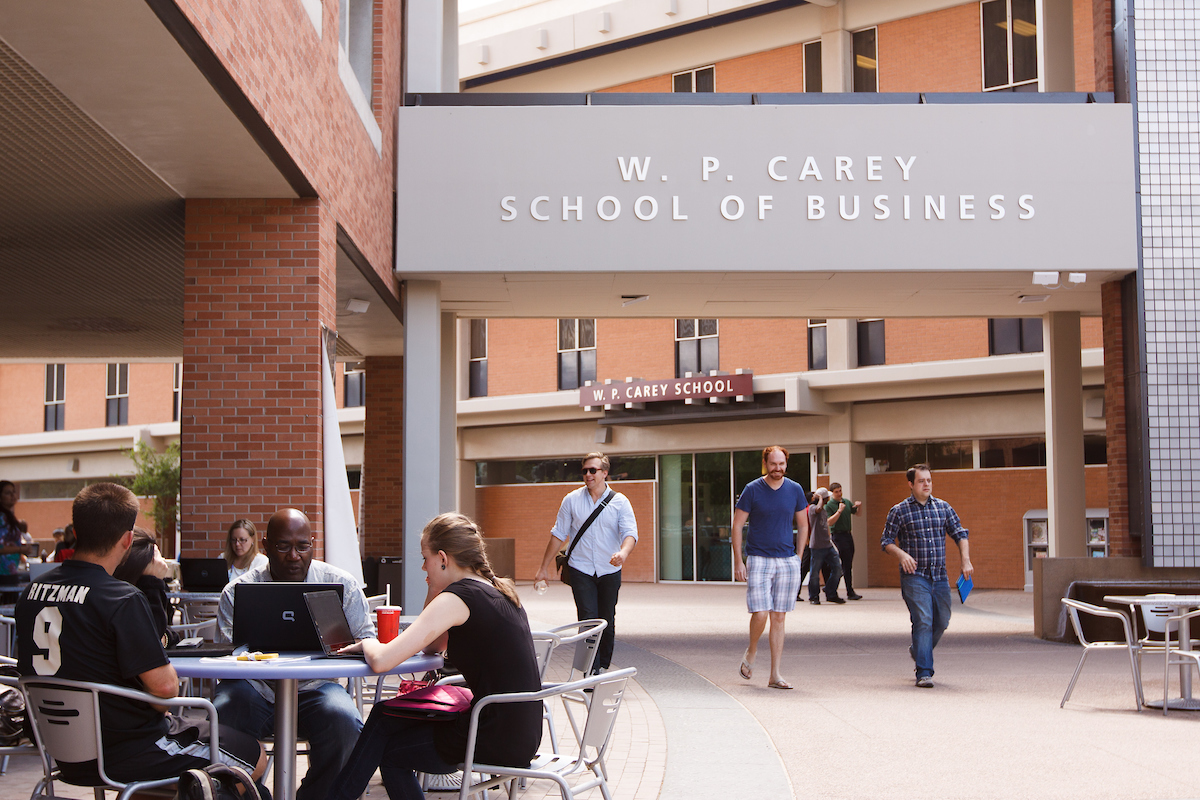
Education eliminates career obstacles for alumnus
W. P. Carey graduate Jason Bortness landed his dream job, thanks to going back to school.
When Jason Bortness (BA Interdisciplinary Studies '16, MSIM '17) lost out on the ideal position — a senior IT role — only because he didn’t have a graduate degree, he vowed never to let education be an obstacle again. He went back to school, earned two more bachelor’s degrees and a master’s degree, and made his studies an advantage.
“I knew that in this moment of my life, I had to make my opportunities for myself and remove the obstacles preventing me from reaching my potential,” he says. “I needed a graduate degree that would take me to the next level in my career. It was time to go back to school.”
It was the first time Bortness faced a roadblock in his career beyond what his experience, relationships, and undergraduate degree could provide. He went back to ASU and the W. P. Carey School of Business where he earned two more bachelor’s degrees — in business and communication — and graduated in May with a master’s degree in information management.
“Getting an education meant taking a chance that I may not complete my degree because life happens, but each degree earned meant something no one could take away,” he says.
Bortness remembers the first day of his master’s program. It was during the orientation when Professor of Information Systems Alan Simon said the MSIM program is meant to teach professionals how to recognize when technology is about to change and how to help your business meet those changes and challenges. That’s when Bortness knew he had made the right decision.
“The MSIM ties three things together: a business degree, a communication degree, and an IT master’s degree,” Bortness says.
The degree program presented plenty of challenges in the classroom, and Bortness says he was surprised at how much the program challenged him beyond the classroom.
Degrees open the door to new career
Armed with four college degrees, five counting his associate’s degree, and seven professional certifications, he went back to the workforce and landed a job at Honeywell working in aerospace and defense. Although much of his work is confidential, Bortness says his latest work will re-shape the engine industry.
The industry is exciting, he says, and technology is always advancing. “There’s a constant effort to stay ahead of the curve and not just sit at a keyboard and drive numbers.
He explains corporations want people who can solve problems and see the big picture. Being able to read data, find answers, and help make decisions is valuable. “Companies want to know what’s the data, as well as what’s happening with the data, why it's going on, and what is the story being told,” Bortness says.
Bortness credits his new degree for helping him land his current job. In addition to focusing on his career, he is working on obtaining more professional certifications and licenses in his field. These certifications and licenses are necessary for today’s business environment, Bortness says, as they validate the employee.
Talent and perseverance come from parents
His competitive nature and knack for problem-solving helped push him forward in the classroom, and in his information technology and management career. His genetics may have helped, too.
“I picked up IT from my dad. He was a brilliant programmer. He knows a lot of coding languages still used today,” Bortness says.
Bortness remembers his dad coming home from a long day at work, eating a quick bite of dinner, and going off to study for his graduate IT degree. Bortness saw the value of an education and hard work by watching his father. He picked up his love of sports from his mom.
Good grades came easily for Bortness, but sports challenged him in his early years. He says his skinny and slightly awkward stature made him work twice as hard as other kids. His mom taught him how to throw a football and a baseball. She told him he was capable of anything.
“She made it clear. She’d say, ‘If you want it bad enough, then you have to go get it,’” Bortness says. It’s a lesson he used on the field back then, and it’s one he’s applying in his career now.
Bortness’ best advice to those going down a similar career path or anyone who has faced challenges is, “Whatever your revolution is, never quit. There is always a way like there is always a choice. So, stay the course,” he says.
When Bortness isn’t working, he likes to detach himself from technology and connect with nature through camping, fishing, and boating. “I’m pretty avid about the outdoors. It’s a reprieve not to have access to technology,” he says.
Bortness’ extracurricular activities on the water may have inspired his answer to how he would solve one of the world’s problems if he had $40 million to do it. He says he’d design a way to turn any water into clean, drinkable water.
Latest news
- Pop culture is key to effective teaching
How a management and entrepreneurship professor uses Ted Lasso and other pop-culture touchstones…
- Artificial intelligence in business master's degree helps Nathan Merriman combine business strategy with technology
Nathan Merriman (MS-AIB '25) had been working in business for a few years when he learned about…
- How the Executive MBA empowered Scott Gates to be a mission-driven leader
Scott Gates (BS Marketing '04, Executive MBA '15) had a very positive experience during his…